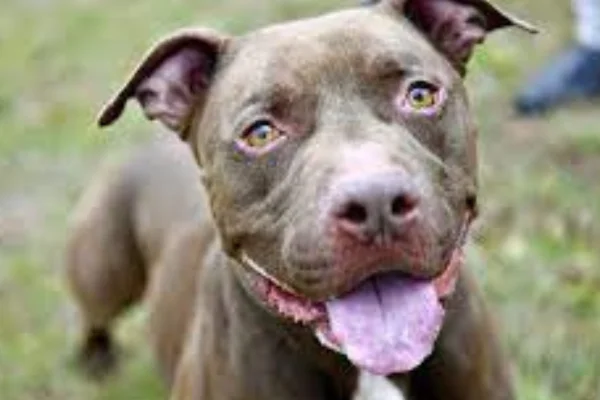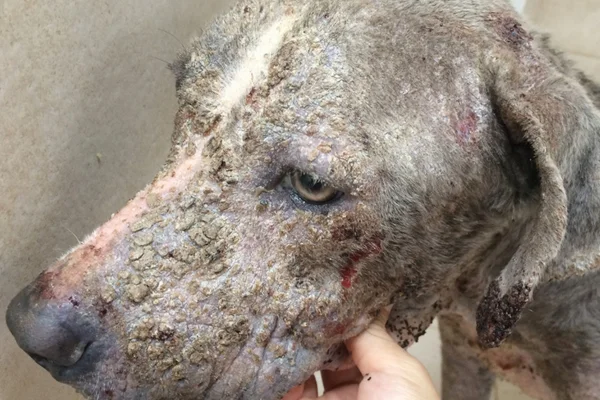Common Pitbull Terrier Health Problems
Introduction
Learn about the diseases that can affect your partner
Pit bull terriers are dogs known for their strength, loyalty and inexhaustible energy. However, like all breeds, they are susceptible to various diseases and health conditions. Knowing about these problems and being aware of the symptoms can make all the difference to your four-legged friend's life. In this article, we'll explore the most common diseases affecting Pitbull Terriers, their causes, symptoms and treatments.
Coxofemoral dysplasia
Hip dysplasia is a genetic condition that affects the hip joint in dogs. In Pitbull Terriers, this condition can be particularly painful, affecting their mobility and quality of life.
Contents
Symptoms
- Difficulty getting up or lying down
- Lameness or reluctance to exercise
- Pain when touching the hip area
- Loss of muscle mass in the back legs
Treatment
Treatment can range from the administration of anti-inflammatories and painkillers to the need for surgery in more serious cases. Keeping the dog's weight under control and providing moderate exercise are also important for managing this condition.
Canine atopy
Canine atopy is an allergic reaction to environmental allergens such as pollen, dust and mites. Pitbulls are predisposed to developing this condition, which can lead to intense itching and skin infections.
Symptoms
- Intense itching
- Redness and inflammation of the skin
- Excessive paw licking
- Recurrent ear infections
Treatment
Treatment involves identifying and minimizing exposure to allergens, as well as the use of antihistamine drugs, corticosteroids and, in some cases, immunotherapy.
Heart Disease
Pitbull Terriers are also susceptible to various heart diseases, including dilated cardiomyopathy and aortic stenosis. These conditions can significantly compromise the dog's health and longevity.
Symptoms
- Persistent cough
- Difficulty breathing
- Fatigue and exercise intolerance
- Occasional fainting
Treatment
Treatment for heart disease can include the use of medication to control blood pressure, strengthen the heart and reduce fluid accumulation. In some cases, dietary changes and light exercise are also recommended.
Dermatitis
Pitbulls have sensitive skin that can be prone to dermatitis, including allergic dermatitis and contact dermatitis. These conditions can be uncomfortable and, if left untreated, lead to more serious infections.
Symptoms
- Redness and irritation of the skin
- Hair loss
- Constant itching
- Presence of lesions or wounds
Treatment
Treatment includes identifying and eliminating allergens or irritants, using medicated shampoos, antibiotics for secondary infections and medication to control inflammation.
Parvovirus
Parvovirus is a highly contagious viral disease that mainly affects unvaccinated puppies. In Pitbulls, parvovirosis can be particularly severe and even fatal.
Symptoms
- Vomiting
- Bloody diarrhea
- Lethargy
- Loss of appetite
Treatment
Treatment is supportive, involving fluid therapy to prevent dehydration, medication to control symptoms and, in some cases, blood transfusions. Prevention is crucial, and vaccination is the best way to protect your dog against parvovirosis.

Obesity
Obesity is a growing problem among dogs of all breeds, including Pitbulls. Overweight dogs are at increased risk of developing a range of health problems, including diabetes, heart disease and joint problems.
Symptoms
- Excessive weight gain
- Difficulty breathing after light exercise
- Lethargy
- Difficulty moving
Treatment
Treatment involves changing the diet, introducing low-calorie foods and increasing the dog's level of physical activity. Consulting a veterinarian for a safe and effective weight loss plan is essential.
Ear infections
Due to their anatomy, Pitbulls are prone to ear infections, which can be caused by bacteria, fungi or mites. These infections can be painful and, if left untreated, lead to more serious complications.
Symptoms
- Itching and irritation in the ear
- Unpleasant smell
- Yellowish or brownish discharge
- Tilting your head to one side
Treatment
Treatment involves regular ear cleaning, the use of topical medication and, in more serious cases, antibiotics or antifungals prescribed by the vet.
Lymphoma
Lymphoma is a type of cancer that affects lymphocytes, a type of white blood cell. In Pitbulls, lymphoma can manifest itself in various parts of the body, including the lymph nodes, spleen, liver and bone marrow.
Symptoms
- Enlarged lymph nodes
- Weight loss
- Lethargy
- Fever
Treatment
Treatment for lymphoma usually involves chemotherapy, which can prolong the dog's life and improve its quality of life. In some cases, radiotherapy may also be an option.
Prevention and General Care
Preventing diseases in Pitbulls involves a combination of regular veterinary care, a balanced diet, adequate exercise and special attention to hygiene. Vaccinations and routine examinations are essential for detecting and treating health problems early on. In addition, providing a clean, allergen-free environment can help reduce the incidence of dermatitis and other allergic conditions.

Conclusion: Pitbull Terrier
Knowing the most common diseases affecting Pitbull Terriers and being aware of their symptoms is crucial to ensuring a long and healthy life for your dog. Prevention, through proper care, and early intervention are the best ways to protect your furry friend. Always remember to consult a vet when you notice any signs of illness, as professional care is essential for your Pitbull's well-being.
Thanks for stopping by, check out our other work too
https://vettopbr.com/cachorros/








